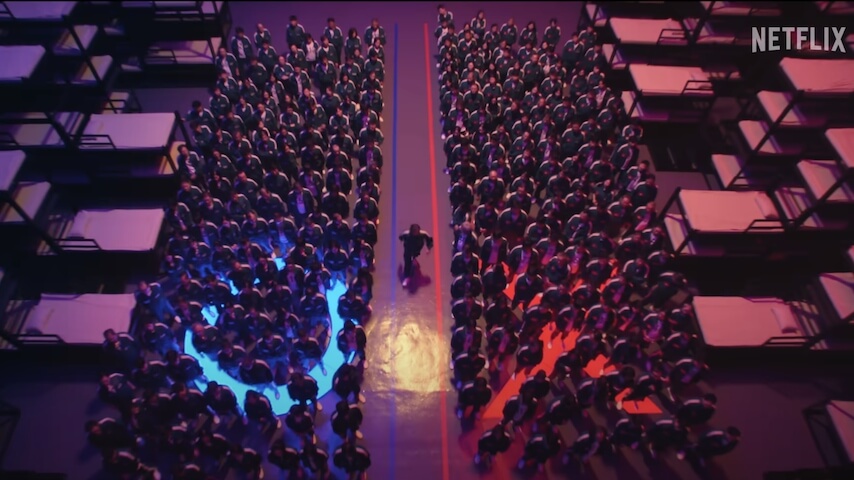Hwang says he “was inspired by the sheer fact that everywhere you turn, people are drawing lines, whether it’s by generation, class, religion, ethnicity or race. I wanted to tell a story about how the different choices we make create conflicts among us and to open up a conversation about whether there is a way to move toward a direction where we can overcome these divisions.” The U.S. presidential election was “the ultimate O-X event,” but these divisions also exist in Korea, where “we’re seeing much worse conflict between the elderly and the younger generation,” he explains. “And you see demarcation everywhere. There’s no room for debate, only hostility. So I was inspired by the direction the entire world is taking.”
This time around, there will be more younger players, which was less prevalent in the first season of Squid Game “because when I was first working on the script, there weren’t reasons for the younger generation to be so hugely indebted,” Hwang shares. “However, during the pandemic, there was this huge cryptocurrency craze that led to so many young people getting neck deep in debt and driven into poverty.” Two of the players are a young woman and her crypto bro ex-boyfriend; the game creators also intentionally added more players with connections to each other “to give more entertainment factor to those that are watching,” says Hwang.
According to THR, “The clash between Gi-hun (Lee Jung-jae) and Front Man (Lee Byung-hun)—who also is a past winner of the game—will drive the remainder of the series, which will conclude with a third season in 2025.” According to Lee Jung-jae, Gi-hun is motivated to return to the deadly games by his “conscience.” But despite the political themes, “I don’t want to say, ‘This is what you should be thinking after you watch the series.’ I don’t think that would be meaningful,” Hwang says. “It would be so much more organic for viewers to watch and then maybe come up with their own questions.” You can check out the full piece, which includes a deep dive into director Hwang’s past, here.

 Keep scrolling for more great stories.
Keep scrolling for more great stories.
